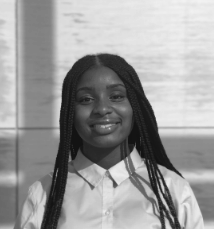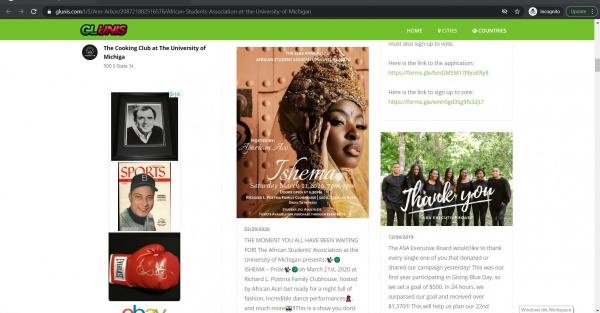Adaku Anaele
Contents
Introduction
What is the point of “privacy settings” when nothing is actually private? Pictures, addresses, phone numbers, emails, credit scores, family relations, neighbors, and more are all posted for the world to see whether you like it or not. It wasn’t until I got to high school that I learned about keeping your social media pages private because of future employment and potential stalking. Most of my pages stayed private and I never posted things super opinionated because I knew if I put something out there, it will stay out there. Understanding that a function of using these social sites is to save and store data for “analytics and research” I can not say that I am comfortable with this idea. However, in order to complete my sign up for these social media sites, I need to agree to those terms. Google provided me with quite a bit of information that was my own as well as information that was not my own. I would say it painted a normal picture of me for the most part: until it got quite specific.
Data Identity Findings
Google, Part 1
Google, the top search engine, laid it all out on the table. I have an account with LinkedIn, Medium, Pinterest, and Facebook. I went to go click on my Facebook and LinkedIn (on incognito mode) and just as I thought, I did not get far. Sites like LinkedIn luckily tell you someone has visited your page and sometimes specify who. Now other sites are also including that feature but give you a number of visitors on your page like a business. By this I mean if you happen to market your page some way, it can get a certain amount of views and impressions which can help you in a marketing sense. My Pinterest showed the boards I saved and interacted with which is not exactly accurate of the person I am right now. Pinterest boards can be seen as a wish board, meaning you may like things that you wish you had or wish to consume. For some people they may wish to consume those items and make their wishes come true. For others, it remains an idea in their head that it would be nice to have an outfit with some expensive shoes or natural hair with voluminous curls.
Google, Part 2
Another thing Google provided me with was information on things that I participated in previous years. I can say some things a stranger may not be able to link to me because they just had my name which can align with the identity of someone else. I found things such as my high school stats as a volleyball player (which was not great). I went to a public high school and depending on which conference your school is in, you have to be registered to receive stats so that your skill level is recorded. It can also be beneficial if you wish to participate in collegiate level sports.
In addition to my high school activity, I found my college involvement as well. I was a part of a cultural organization on campus called African Student Association (ASA) and held the position of Events Coordinator. However, I did not find this on the University of Michigan website. I found this information on a sketchy website that stored all of the information we have posted on Instagram. The Instagram page is public but I wonder who would ever create such pages to store information like that. If it wasn’t created by hand, I wonder how these information systems know when and what to reproduce on what seems like random websites.
My typical usernames
Luckily, when my full name is searched, it is not linked to my Twitter and Instagram accounts. When I searched for my typical usernames they surely popped up and for Instagram, there was not much to see as that was private. My Twitter account is public and as stated in my Twitter bio, “I just retweet stuff”. Knowing how opinionated Twitter was never an app I found comfortable enough to share what’s happening in my everyday life to the public. My Twitter algorithm got filled with people making fun of others, saying controversial things, and feeding into societal norms. I knew Twitter was not the app for me which has left me disengaged from the app for a few months now. If someone were to make conclusions from my page, they would probably say that I care about equal rights, I’m a fan of Issa Rae, and I engage in things happening in the African community.
What else?
A surprising thing I discovered was that my dad’s name popped up a lot and more information than I wanted was available on the internet. It had his full name, his siblings’ names, his children’s names, and our neighbor's names listed on his “profile” that he did not create as people that could be linked to him in some way. It was crazy to see all of this information extremely accessible. It creates concerns that if I can search deep enough to find this much detail in my family’s life, just about anyone can search deep enough on the internet to figure out all they can about a person's life and the people who may be in relation with them.
Conclusion
Being reserved is something that I embody on a daily basis and that was also evident in what I found was my data identity. You could access me on the surface meaning find out what social media pages I may have but not know much that is on there. Even if you do happen to access a page that I may have and see a bit on there, it is not very telling of what I have going on in my personal life which I find to be a good thing. My data identity could portray me as a responsible person but in reality I could be very disorganized. One’s data identity can depict many aspects of a person whether accurate or inaccurate but it should not conclude the many facets of a person’s actual identity.

